Microsoft Windows is a product line of proprietary graphical operating systems developed and marketed by Microsoft. It is grouped into families and sub-families that cater to particular sectors of the computing industry – Windows (unqualified) for a consumer or corporate workstation, Windows Server for a server and Windows IoT for an embedded system. Windows is sold as either a consumer retail product or licensed to third-party hardware manufacturers who sell products bundled with Windows.
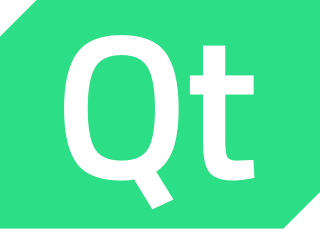
Qt is a cross-platform application development framework for creating graphical user interfaces as well as cross-platform applications that run on various software and hardware platforms such as Linux, Windows, macOS, Android or embedded systems with little or no change in the underlying codebase while still being a native application with native capabilities and speed.
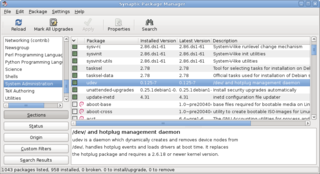
A package manager or package-management system is a collection of software tools that automates the process of installing, upgrading, configuring, and removing computer programs for a computer in a consistent manner.
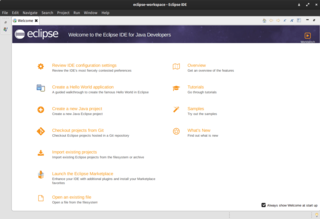
Eclipse is an integrated development environment (IDE) used in computer programming. It contains a base workspace and an extensible plug-in system for customizing the environment. It is the second-most-popular IDE for Java development, and, until 2016, was the most popular. Eclipse is written mostly in Java and its primary use is for developing Java applications, but it may also be used to develop applications in other programming languages via plug-ins, including Ada, ABAP, C, C++, C#, Clojure, COBOL, D, Erlang, Fortran, Groovy, Haskell, HLASM, JavaScript, Julia, Lasso, Lua, NATURAL, Perl, PHP, PL/I, Prolog, Python, R, Rexx, Ruby, Rust, Scala, and Scheme. It can also be used to develop documents with LaTeX and packages for the software Mathematica. Development environments include the Eclipse Java development tools (JDT) for Java and Scala, Eclipse CDT for C/C++, and Eclipse PDT for PHP, among others.
freedesktop.org (fd.o), formerly X Desktop Group (XDG), is a project to work on interoperability and shared base technology for free-software desktop environments for the X Window System (X11) and Wayland on Linux and other Unix-like operating systems. Although freedesktop.org produces specifications for interoperability, it is not a formal standards body.

Arch Linux is an independently developed x86-64 general-purpose Linux distribution that strives to provide the latest stable versions of most software by following a rolling-release model. The default installation is intentionally minimal so that users can add only the packages they require.
Google Developers is Google's site for software development tools and platforms, application programming interfaces (APIs), and technical resources. The site contains documentation on using Google developer tools and APIs—including discussion groups and blogs for developers using Google's developer products.
The following tables compare general and technical information for a number of notable network monitoring systems. Please see the individual products' articles for further information.
In free and open-source software (FOSS) development communities, a forge is a web-based collaborative software platform for both developing and sharing computer applications.

WaveMaker is a Java-based low-code development platform designed for building software applications and platforms. The company, WaveMaker Inc., is based in Mountain View, California. The platform is intended to assist enterprises in speeding up their application development and IT modernization initiatives through low-code capabilities. Additionally, for independent software vendors (ISVs), WaveMaker serves as a customizable low-code component that integrates into their products.

Chromium is a free and open-source web browser project, primarily developed and maintained by Google. It is a widely-used codebase, providing the vast majority of code for Google Chrome and many other browsers, including Microsoft Edge, Samsung Internet, and Opera. The code is also used by several app frameworks.
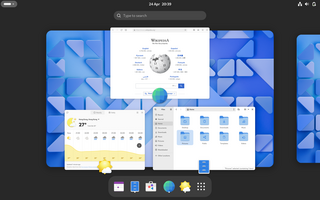
GNOME Shell is the graphical shell of the GNOME desktop environment starting with version 3, which was released on April 6, 2011. It provides basic functions like launching applications and switching between windows, and is also a widget engine. GNOME Shell replaced GNOME Panel and some ancillary components of GNOME 2.
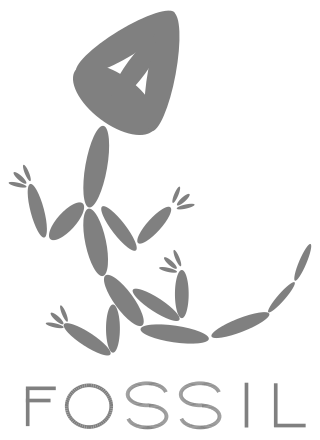
Fossil is a software configuration management, bug tracking system and wiki software server for use in software development created by D. Richard Hipp.

Icinga is an open-source computer system and network monitoring application. It was created as a fork of the Nagios system monitoring application in 2009.

Cloud9 IDE is an Online IDE, published as open source from version 2.0, until version 3.0. It supports multiple programming languages, including C, C++, PHP, Ruby, Perl, Python, JavaScript with Node.js, and Go.

Sailfish OS is a paid Linux-based operating system based on free software, and open source projects such as Mer as well as including a closed source UI. The project is being developed by the Finnish company Jolla.

mpv is free and open-source media player software based on MPlayer, mplayer2 and FFmpeg. It runs on several operating systems, including Unix-like operating systems and Microsoft Windows, along with having an Android port called mpv-android. It is cross-platform, running on ARM, MIPS, PowerPC, RISC-V, s390x, x86/IA-32, x86-64, and some other by 3rd party.

VOGL is a debugger for the OpenGL rendering API intended to be used in the development of video games. VOGL was originally written at RAD Game Tools and Valve. VOGL is free and open-source software subject to the terms of the MIT License.
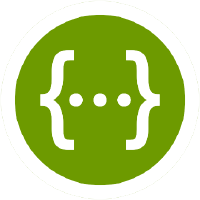
Swagger is a suite of tools for API developers from SmartBear Software and a former specification upon which the OpenAPI Specification is based.













